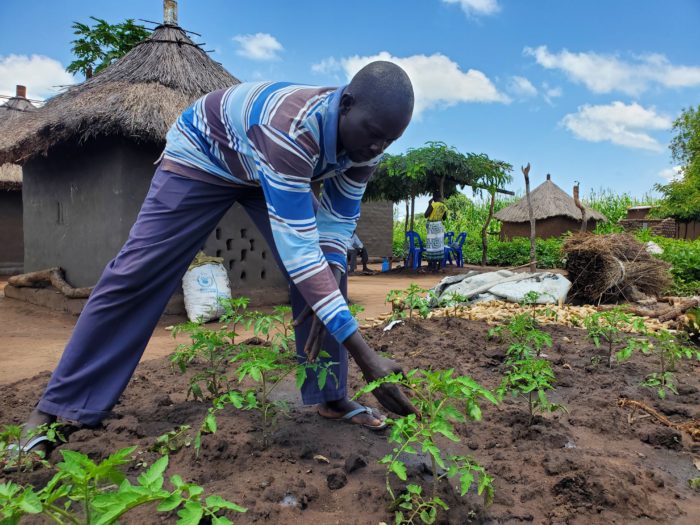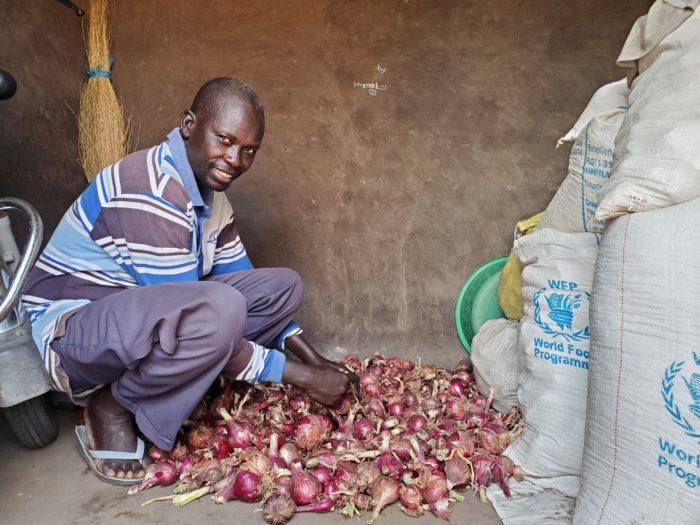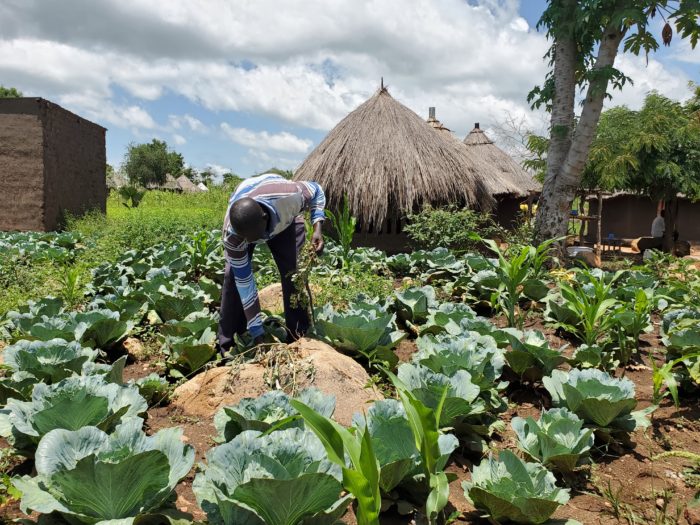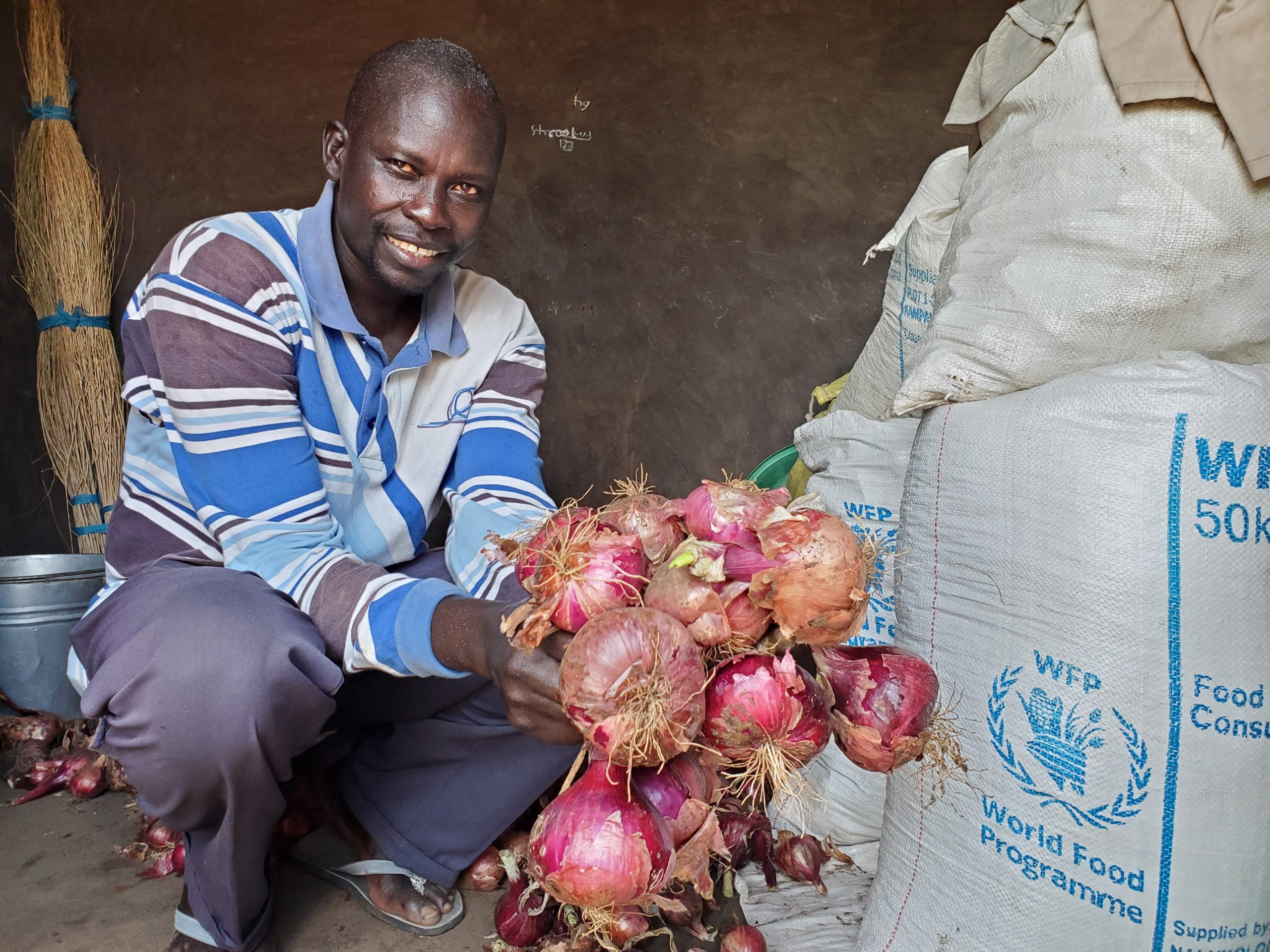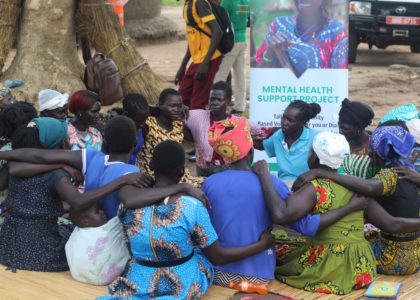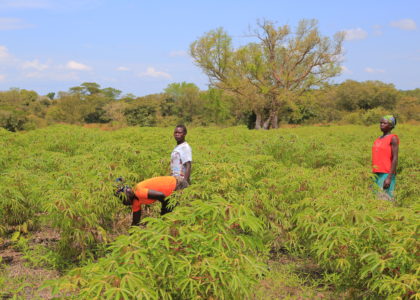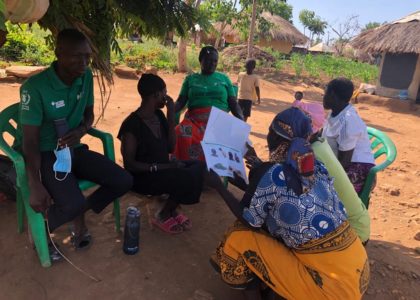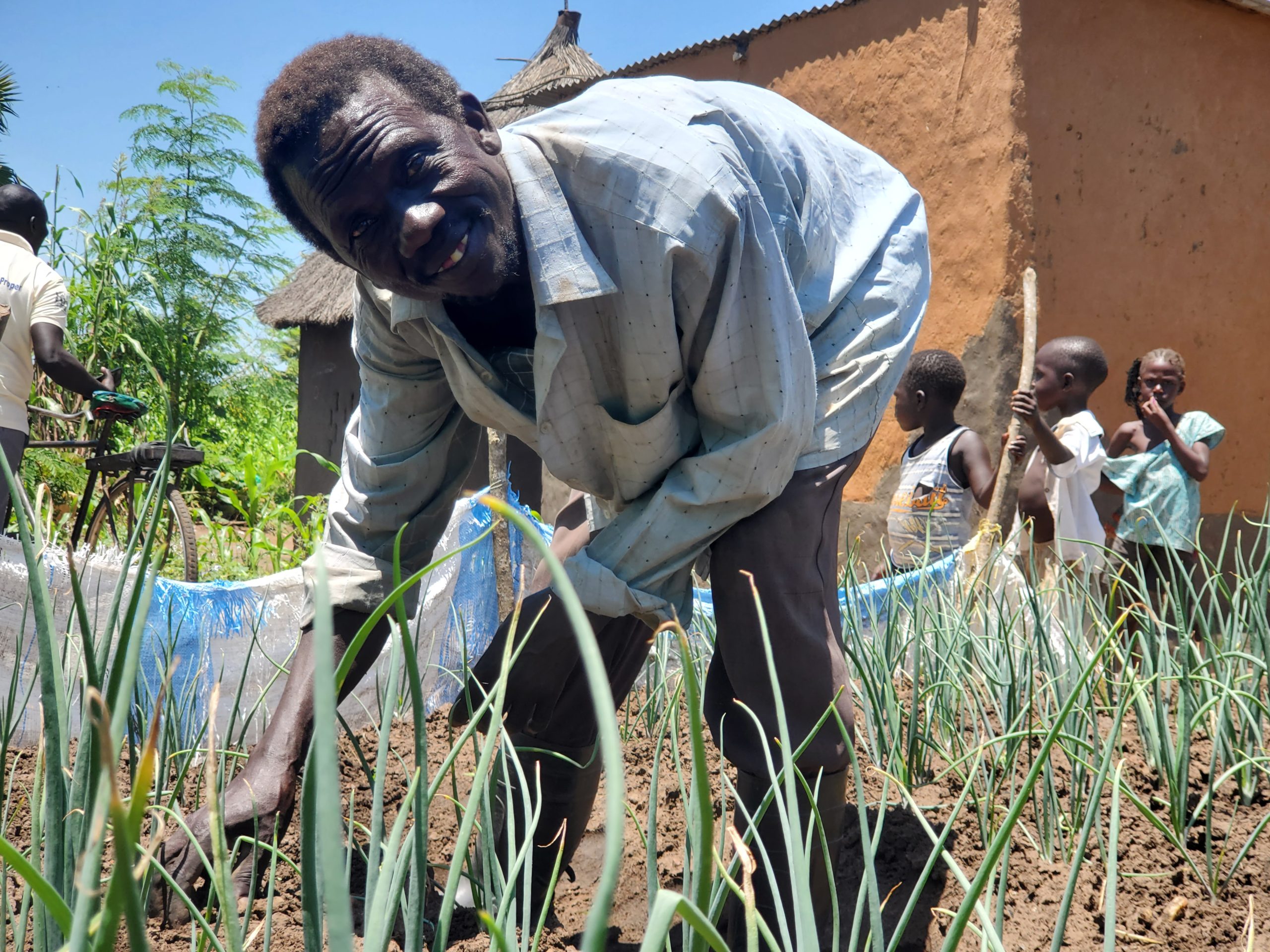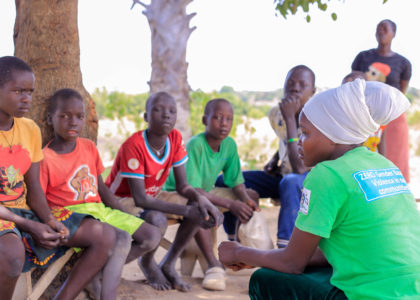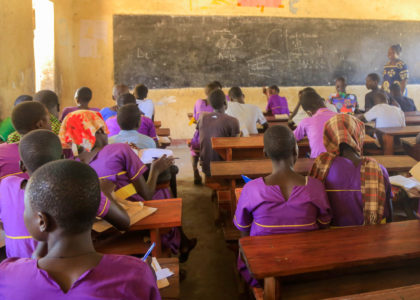In 2020, World Food Programme announced a food ration reduction to 60% for all refugee settlements in Uganda due to donor funding constraints. The situation was further worsened by Covid 19 outbreak which affected many refugee’s thus increasing food insecurity and vulnerabilities. According to Food security and Nutrition Assessments report-FSNA 2020, only 40.9% of refugees in Palorinya were classified as food secure.
To address household food insecurity, AFOD Uganda with support from WFP set up vegetable demonstration gardens and nutrition education corners at Food Distribution Points (FDPs) to provide trainings on backyard gardening for refugees to supplement their household nutrition. Because of these trainings, many refugees have adopted the practice which is now being replicated across households to meet food security needs. FSNA 2022 findings show a positive impact with 55% of refugee households in Palorinya found to be food secure, a progressive improvement of 14.1% from FSNA 2020.
Lubajo Mike Joseph, a 38-year-old South Sudanese refugee living in Palorinya refugee settlement is one of the beneficiaries trained and has replicated vegetable gardening at his home. He shares his experiences;
“During distribution, I always listened to the pre-recorded messages on nutrition education and attended demo gardening trainings. Being a man with 2 families, I had a lot of responsibilities which were not met by the monthly food rations. When I learnt that I can improve my family’s nutrition with vegetable growing and that I could do it on a small piece of land, I became interested and setup my backyard garden to plant different vegetables”.
“I used my small savings from the casual labor work I provide at WFP FDP to buy cabbage, tomato and onion seeds, and fortunately when I planted, I realized good yields for both consumption and sale which raised enough money to pay for my five children’s school fees balance. I have turned vegetable gardening into a livelihood opportunity because through it, I have realized enough money to start goat rearing and I am currently looking into hiring a bigger plot of land to make it a family business which will improve my household income.”
“I appreciate the efforts by AFOD to support refugees in improving our food security and livelihood. I am now using the knowledge and skills acquired and my vegetable garden as demo plot to teach and encourage other refugee households to embrace vegetable growing as the only way to supplement on the reduced ration and have a variety of foods even with the limited land space allocated to refugees.”
